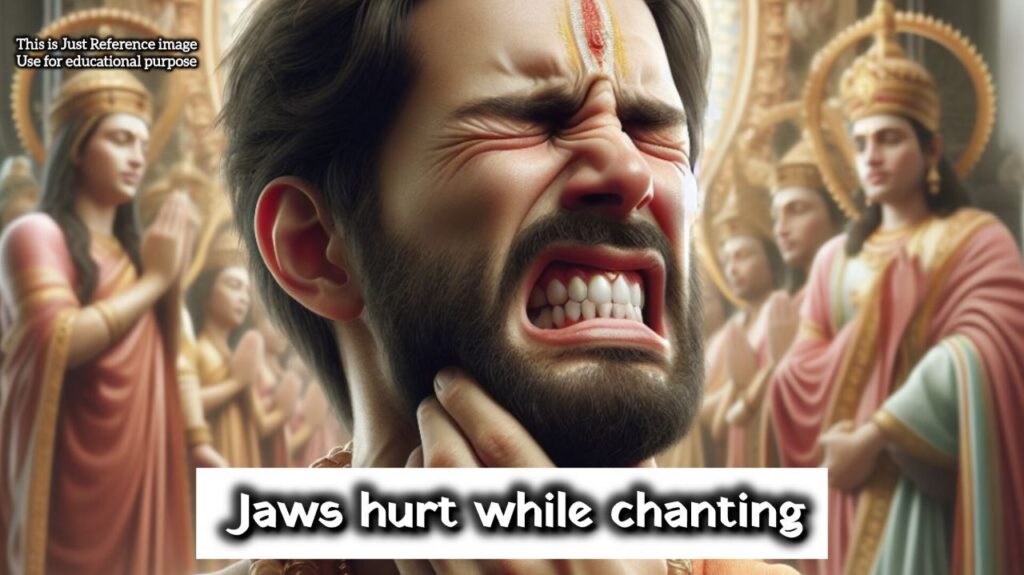While chanting the Hanuman Chalisa is a devotional practice, experiencing jaw pain during or after chanting can be concerning. There could be a few possible explanations for this:

Muscle Strain:
- Overexertion: Chanting for extended periods, especially with forceful pronunciation, can strain the muscles involved in jaw movement (masseter, temporalis, pterygoids). This can lead to muscle fatigue and pain.
- Improper Technique: Incorrect posture or jaw clenching during chanting can further exacerbate muscle strain and discomfort.
- TMJ Dysfunction: The temporomandibular joint connects your jawbone to your skull. If this joint is inflamed or misaligned, repetitive jaw movements during chanting could aggravate the condition, leading to pain, clicking, or locking of the jaw.
- Bruxism (Teeth Grinding): Some individuals unknowingly clench or grind their teeth, which can worsen during activities like chanting. This habit can put excessive stress on the TMJ and surrounding muscles, causing pain.
Other Factors:
- Stress and Anxiety: Stress and anxiety can manifest physically, causing muscle tension in the face and jaw, which could be amplified during chanting.
Some Tips to Use Before Chanting Hanuman chalisa if you feel Jaw Pain
- Moderation and Breaks: Avoid overexertion. Take breaks during chanting to relax your jaw muscles and avoid straining them.
- Proper Technique: Focus on relaxed chanting with proper posture. Avoid clenching your jaw or using excessive force.
- Warm-up and Stretching: Gentle jaw stretches before and after chanting can help improve flexibility and prevent muscle strain.
- Stress Management: Practice relaxation techniques like deep breathing or meditation to reduce stress and muscle tension.
- Dental Check-up: Consult a dentist to rule out any underlying dental problems that might be contributing to the pain.
If the pain persists or worsens, it’s crucial to seek professional advice from a doctor or dentist to determine the underlying cause and receive appropriate treatment.